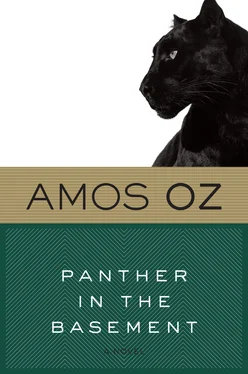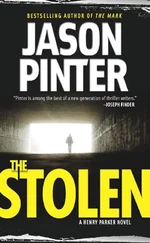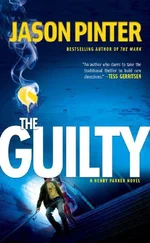"It will be a white lie," Father said, and his shortsighted blue eyes looked through his spectacle frames straight into my own. For an instant a rare, mischievous glint shone in his eyes, the kind I had seen only occasionally, as when he recounted how he had delivered a crushing reply to some scholar or writer, who had been left "speechless, as though thunderstruck." "We shall permit ourselves to use this white lie in case of need, only because of the danger, and we shall do it with regret, because a lie is a lie. Always. Even a white lie is still a lie. Kindly take note of that."
Mother said:
"Instead of lecturing him, why don't you find time to play with him once in a while? Or at least talk to him? A conversation: do you remember? Two people sit down together, they both talk and they both listen? Both trying to follow what the other is saying?"
Father picked up the package, cradled it in his arms like a crying baby, and carried it from the kitchen to the room that served as my parents' bedroom, my father's study, and a living room for all of us. Its walls were lined with bookshelves from floor to ceiling. There was no space for a single picture or ornament.
Father's bookshelves were organized with an iron logic into sections and subsections: by subjects and fields and languages and, alphabetically, by the authors' names. The top brass, the field marshals and generals of the library, that is, the special tomes that always gave me a thrill of respect, were priceless, heavy books clad in splendid leather bindings. On their rough leather surface my fingers sought out the delightful impression of the golden lettering, like the chest of some field marshal in the Fox Movietone newsreels bedecked with rows and rows of gleaming medals and decorations. When a single ray of light from Father's desk lamp fell on their ornate gold ornamentation, a flickering sparkle leaped toward my eyes, seeming to invite me to join them. These books were my princes, dukes, earls, and barons.
Above them, on the shelf just below the ceiling, hovered the light cavalry: periodicals in many-colored wrappers, arranged by topic, date, and country of origin. In striking contrast to the heavy armor of the commanding officers, these cavalrymen were dressed in light robes of exciting colors.
Around the cluster of field marshals and generals stood large clumps of brigade and regimental officers, rough, tough-shouldered books, in strong cloth bindings, dusty, slightly faded, as though dressed in sweaty, grubby camouflage battle dress, or like the fabric of old flags, tested in battle and hardship.
Some of the books showed a narrow gap between their cloth bindings and their bodies, like the cleavage of the barmaid in the Orient Palace. If I peeped inside I could see only a fragrant darkness, and catch a faint echo of the scent of the book's body, vague, fascinating, and forbidden.
Ranking lower than the officer books in their cloth bindings were the hundreds and hundreds of simple books bound in rough cardboard, smelling of cheap glue — the grey and brown privates of the library. Even lower than these privates in my estimation were the rabble of semiregular militias: unbound books whose pages were held together by tired rubber bands or wide strips of sticky paper. There were also some shabby bandit books, in disintegrating yellowish paper wrappers. Finally, beneath these, were the lowest of the low, the nonbooks, a mixed multitude of mendicant leaflets, offprints, handbills, and, on the lowest rung of the bookcase, flotsam and jetsam huddled on the bottommost, waiting for Father to remove them to some asylum for unwanted publications, and meanwhile here they were, temporarily camped, out of kindness, not of right, heaped up, crowded together, until today or tomorrow the east wind with the birds of the desert would sweep their corpses away, until today or tomorrow, or at the latest by the winter, Father would find the time to sort them out ruthlessly and throw most of these charity cases (brochures, gazettes, magazines, journals, pamphlets) out of the apartment, to make room for other beggars, whose day would not be slow to arrive. (Father took pity on them, however. Again and again he promised himself to sort them, make a selection, get rid of some, but I had the feeling that not a single printed page ever left our apartment, although it was bursting at the seams.)
A fine, dusty smell hovered around these bookcases, like the deposit left by a turbulent, yet exciting, foreign air. To this day you can take me to a room with my eyes closed and my ears plugged, and I can tell at once, without the slightest doubt, if it is a room full of books. I take in the smells of an old library not with my nostrils but through my skin, a kind of grave, pensive place laden with book dust finer than any other dust, blended with the savor that emanates from old paper, mingled with the smell of glues ancient and modern, pungent thick almond scents, sourish sweat, intoxicating alcohol-based adhesives, a distant whiff of the world of seaweed and iodine, and undertones of the lead smell of thick printer's ink, and a smell of rotting paper, eaten away by damp and mildew, and of cheap paper that is crumbling to dust, contrasting with the rich, exotic, dizzying aromas emanating from fine imported art paper that excite the palate. The whole overlaid with a covering of dark air that has been fixed motionless for years upon years, caught in the secret spaces between the rows of books and the wall behind them.
In the wide, heavy bookcase to the left of Father's desk the bulky reference works were assembled, like the supporting artillery dug in to the rear of the storm troops: row upon row of multivolume encyclopedias in various languages, dictionaries, a gigantic biblical concordance, an atlas, lexicons and handbooks (including one book entitled Index of Indexes, in which I hoped to find deep secrets but which actually contained nothing but lists of thousands of books with weird names). The encyclopedias, dictionaries, and lexicons were nearly all field marshals and generals, that is to say, splendid leather-bound tomes with gold writing that my fingertips longed to stroke and fondle, that fascinated me, not only with the delight of touching them but also with longing for the endless expanse of knowledge that was beyond my reach because it was in foreign languages, knowledge of the cross, the hussar, the steeple, the forest, the cottage, and the meadow, the carriage and the streetcar, the cornice, porch, and gable. And what am I in comparison? Nothing but a young Hebrew Underground fighter, whose life is devoted to driving out the foreign oppressor but whose soul is bound up with his because the oppressor, too, comes from lands with rivers and forests, where belfries stand forth proudly and weathervanes rotate sedately on the roofs.
Around the golden letters that were stamped on the leather bindings were decorative flowers and sprigs, the emblems of the publishing house or library, which seemed to me like the arms and blazons of so many royal and noble houses. There were even winged dragons and pairs of furious golden lions supporting a closed or unrolled scroll, or an impression of a castle, or twisted crosses like the piercing crooked serpent we learned about in Bible class.
Occasionally Father would lay his hand on my shoulder and invite me on a guided tour. This is the rare Amsterdam edition. The Talmud printed by the widow and brothers Romm. These are the arms of the Kingdom of Bohemia that no longer exists. This binding is made of deerskin, which is why it is pinkish, the color of raw flesh. And here we have a priceless edition of the Year of the Creation 5493 (corresponding to the civil year 1733), perhaps from the library of the great Moses Hayyim Luzzatto, who may even have handled it himself. It has no equal, even in the rare-books collection in the National Library on Mount Scopus, and — who knows? — there may be only another dozen copies left in the whole world, or even seven or fewer. (Father's words made me think of Abraham bargaining with God about the number of righteous men in Sodom.)
Читать дальше












